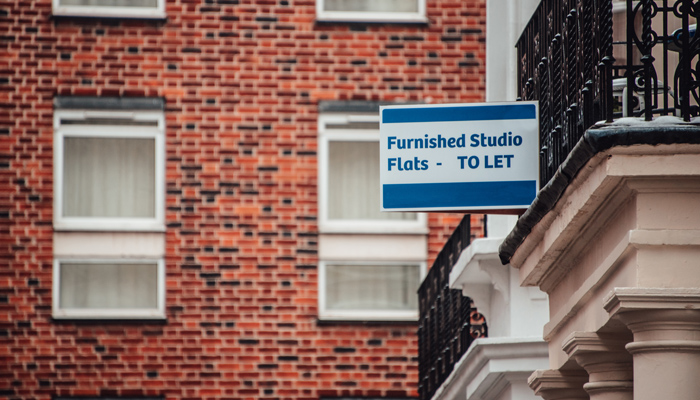The good landlord guide
Landlords have gained a pretty poor reputation in recent years. A reputation that, in the large part, is totally unjustified. However, by being one of the ‘good guys’, you have an opportunity to win your tenants over. And that means that they are more likely to renew each year and that you can get the most out of your investment. By following these 10 simple steps you can protect your property and the people living in it.
1. Preparation Is Everything
We all know that first impressions are lasting. So, before you even let potential tenants view your property, make sure it is looking its best. Have the property cleaned and finish those simple DIY jobs. Consider whether you want to let the property furnished or not - just remember that the more items you provide the wider your liability will be. Making the right impression can make the difference between your property being snapped up, or sitting on the market for a long time.
2. Safety First
As a landlord, you have a legal obligation to ensure your property meets safety standards. This includes making sure your have complied with Gas Safety, Electrical Safety and ensuring there are fire alarms and carbon monoxide alarms fitted. Get these checked regularly and keep records. Don't forget, if you don't comply with the regulations, not only could you be putting your tenants at risk but your Landlord Insurance could be invalidated.
3. Get a Letting Agent or Going It Alone
The choice between using a letting agent or managing the process yourself comes down to two things - time and money. Letting agents take a percentage of the profits from your rental income, which can be anywhere between 8-15%. But in return they save you time looking for tenants and checking references as well as being the day-to-day point of call should there be any problems. If you do decide to go with a letting agent, it is essential you choose a good one who delivers the best possible value for your money.
4. Finding the Right Tenant
With the right property, you will most likely have a number of potential tenants to choose from. The key is making sure you pick the right one. Start by getting references - the ideal reference is a verifiable one from a previous landlord. Take the time to follow up on the references to make sure they are genuine. Next, carry out a credit check to verify not only that the tenant will be able to pay the rent, but that they are actually who they say they are. Even if you are using a letting agent, it's best to carry out the interviews yourself and go with your gut instinct. Remember, a good relationship with your tenant can be worth more than anything written on paper.
5. Know your Rights
If you're going to be a good landlord, it's essential you understand both your rights and the rights of your tenant. For example, you need to know when you are legally allowed to enter the tenant's home (never without at least 24 hours notice), where the responsibilities lie for the upkeep of the property, and what to do should you wish to evict the tenant. All the rights should be detailed in the tenancy agreement. A letting agent or solicitor can help you draw up a tenancy agreement, or there are a number of templates available to download from sites such as the Residential Landlords Association.
6. Deposits
It is common practice to insist on a deposit of between 4-6 weeks rent to offer protection against any damage caused by the tenant. Since April 2007, new legislation was introduced which means that landlords must register their tenant's deposit with an approved Tenancy Deposit Protection (TDP) scheme. Be aware, if you don't protect your tenant's deposit when required, your tenants can take you to court and you may have to repay them up to three times the amount of their deposit.
7. Detailed Inventory
A detailed and accurate inventory can be one of the most important documents you create as a landlord. It is especially important if you are letting a furnished property. The inventory is your proof of how the property was provided on the day the tenant moved in. It should describe in detail everything in your property, and needs to be clear and easy to understand. You might even want to consider taking some photos of the items and getting them signed by you and the tenant - a simple way to protect you should any disputes arise.
8. Residential Landlords Insurance
The responsibility for insuring your property comes down to you, the landlord. However, most standard house insurance policies won't give you the level of cover you really need. Which is why you need Residential Landlords Insurance that does. Not only do you need to think about the building, you also need to consider the people living in your property.
Letting to students or DSS tenants will often require different cover than letting to professionals, as will letting to single occupants versus families. You should also cover yourself for periods of vacancy, for example between tenancy agreements or should the property be uninhabitable due to repairs. Finding a Landlord's Insurance that is flexible enough to adapt to your needs is essential for your peace of mind and for the peace of mind of your tenants.
9. Ending A Tenancy Agreement
The majority of tenancy agreements come to a natural and amicable end. However, there may be times when you need to get rid of your tenant because there is a problem. First you will need to be able to supply 'good proof' for evicting them, for example if they haven't paid their rent for more than 8 weeks or they have broken some of the terms of the tenancy agreement.
To start eviction proceedings you will need to serve a Section 8 Notice, which gives the tenant 14 days to respond. If there is still no resolution to the problem, then you will need to apply to the court for a possession order. It's a relatively simple process, but not one that any Landlord wants to have to resort to. Which is why finding the right tenants in the first place is so important.
10. Vacant Periods
There may be times when your property is left vacant. Even then, the wise landlord will take steps to make sure the property is protected. Try and make the property appeared lived in by collecting the post regularly, opening and closing the blinds frequently, and even consider using a light timer. If possible, have a car parked in the driveway. Hopefully, these will only be brief gaps, but do make sure that your insurance covers you for vacant periods.
About the author
 Alison Wild BCom (Hons), FMAAT, MATT, Taxation Technician is a highly respected industry professional who has been working with and advising SMEs in areas including tax, pensions, insurance and marketing for over 25 years. She is a member of the Association of Accounting Technicians (AAT) and Association of Tax Technicians (ATT) and also has over 20 years' experience as a residential landlord.
Alison Wild BCom (Hons), FMAAT, MATT, Taxation Technician is a highly respected industry professional who has been working with and advising SMEs in areas including tax, pensions, insurance and marketing for over 25 years. She is a member of the Association of Accounting Technicians (AAT) and Association of Tax Technicians (ATT) and also has over 20 years' experience as a residential landlord.
Date: February 01, 2013
Category: Landlords












